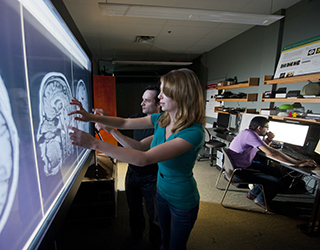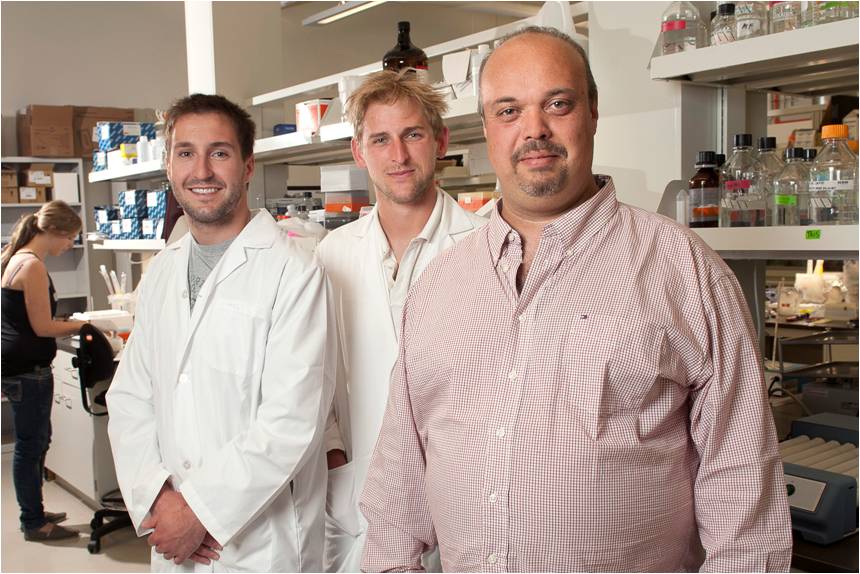Medical Sciences
 .
.Our Science degrees span all spectrum of human, animal and plant health. While it is easy to see the connections with some programs, others may be an unexpected surprise. Please see the list below for our Science degrees that apply to the health industry.
Biochemistry teaches students to explore the chemistry of living organisms and the molecular basis for change occurring in living cells. Because biochemistry tries to unravel the complex chemical reactions that occur in a variety of life forms, it provides the basis for practical advances in all areas of medicine, agriculture, veterinary medicine and forensics.
This life science takes a coordinated approach to the study of cells- the basic units of life, and integrates all the other life sciences in studying cells from the point of view of how they function. Cell biology is important to the study of diseases, down to the cellular level. For those interested in the health industry consider cell biology and it's applications to research, pharmaceutical and biotechnology industries (new therapies and vaccines, new medical tests etc).
Whether they are developing new therapeutics and vaccinations, detecting food borne illnesses or using nano-materials to facilitate heart transplants, our chemists prove that chemistry plays a major role in the health industry.
Immunology is the study of the physiological system that prevents or limits attack by infectious organisms. This is a broadly based program that considers the full range of host responses to pathogens that occur in living organisms. The diversity of infectious agents and their adaptations in response to host immune systems will be central to the program.
Pharmacology is the study of the way in which chemical substances affect living organisms.
Our degree program covers four main areas:
1. Pharmacodynamics: the study of the effects of drugs on the events and processes that occur in living things.
2. Pharmacokinetics: the study of the processes which limit the duration or action of drugs.
3. Toxicology: the study of the mechanisms by which chemicals cause harm to organizations
4. And finally, the use and abuse of drugs in society
